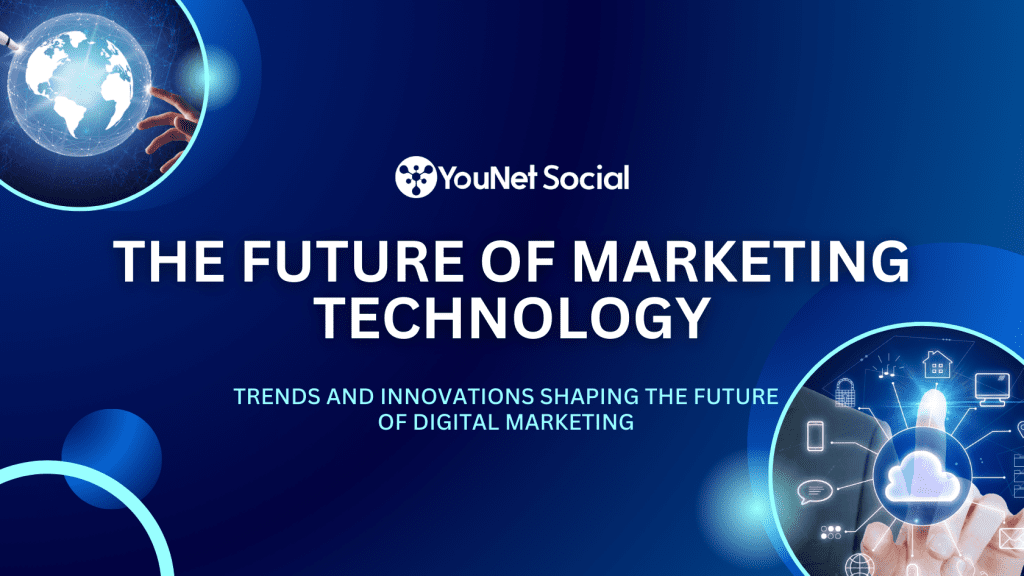

Digital marketing is evolving at a breakneck pace, driven by rapid technological advancements that are reshaping the way brands connect with their audiences. Marketing technology—or martech—has become an essential cornerstone for agencies aiming to deliver personalized, data-driven experiences that stand out in a crowded digital space. In this blog post, we will explore the latest Martech trends, including artificial intelligence (AI), automation, and predictive analytics, and discuss how these innovations are transforming client engagements.
Martech has grown from simple email marketing tools and basic analytics dashboards, but now it’s a huge set of connected programs that help manage every step of a customer’s experience. Since there’s more competition and clients expect more, using these advanced tools is really important for marketers. Marketing agencies use these tools to give better service, work more efficiently, and get better results for their clients.
1. Artificial Intelligence: The New Frontier in Digital Marketing


AI-Driven Personalization
Artificial intelligence is the most disruptive force in the digital marketing space today. At its core, AI enables brands to analyze vast datasets and uncover actionable insights that can drive hyper-personalized customer experiences. Here’s how:
- Dynamic Content Creation: AI-powered marketing tools can tailor content in real-time based on user behavior, preferences, and demographics. This means that every interaction—from emails to website visits—can be customized to resonate with the target audience.
- Customer Segmentation: Machine learning algorithms can segment audiences far more precisely than traditional methods. By identifying micro-segments, agencies can craft highly targeted campaigns that speak directly to the needs and interests of specific groups.
- Chatbots and Virtual Assistants: AI-driven chatbots have revolutionized customer service. They provide instant support, answer frequently asked questions, and even guide users through complex purchasing decisions, all while collecting data to further refine marketing strategies.
Enhanced Data Analysis
Beyond personalization, AI is transforming data analysis. Predictive models powered by AI can forecast trends, predict customer behaviors, and even identify potential issues before they arise. This level of foresight not only boosts campaign performance but also helps agencies proactively manage client relationships, ensuring that strategies remain agile and responsive to market changes.
2. Automation: Efficiency and Scale in Client Engagements
Automation has become a buzzword in the marketing industry, and for good reason. With countless tasks to manage—from social media scheduling to email drip campaigns—automation tools empower agencies to maintain efficiency without sacrificing quality. Here are some key benefits:
- Time Savings: By automating routine tasks, marketers free up valuable time to focus on strategic initiatives and creative problem-solving. This increased efficiency directly translates to faster turnaround times for client campaigns.
- Consistency Across Channels: Automated systems ensure that messaging remains consistent across all digital channels. Whether it’s a social media post or an email blast, automation helps maintain brand voice and coherence.
- Improved ROI: Automation tools not only reduce operational costs but also enhance campaign performance. Automated A/B testing, for instance, can quickly determine the most effective messaging, ensuring that every campaign is optimized for success.
3. Social Listening: Understanding and Anticipating Client Needs


Monitoring Trends and Behaviors
Social listening is transforming how agencies develop strategies by monitoring real-time conversations and trends across digital channels. By leveraging social listening tools, agencies can analyze consumer sentiments, track emerging topics, and detect potential issues before they escalate. This proactive approach enables marketers to optimize their campaigns, allocate budgets more efficiently, and mitigate risks.
For example, one agency used a social listening tool to monitor discussions around a major product launch. By analyzing the feedback and trending topics, they adjusted their messaging and posting schedule to address consumer concerns, resulting in a 15% improvement in overall engagement.
Enhancing Customer Journeys
Social listening goes beyond monitoring trends—it plays a crucial role in enhancing the overall customer journey. By actively listening to customer feedback and conversations, agencies can identify areas where consumers express both satisfaction and frustration. This insight allows them to create personalized interventions that not only resolve issues but also preemptively address potential challenges. Such proactive measures build trust, foster customer loyalty, and strengthen long-term client relationships.
Through social listening, agencies can continuously refine their strategies to ensure that every campaign resonates with its target audience, ultimately leading to more impactful and engaging customer experiences.
4. Immersive Marketing with AR and VR


Augmented reality (AR) and virtual reality (VR) are rapidly transforming how brands interact with their audiences by creating highly engaging and memorable experiences. These technologies allow marketers to go beyond traditional media, offering interactive encounters that capture attention and drive engagement. Let’s explore how real brands are using AR and VR to revolutionize their marketing strategies.
Transforming B2B Marketing
In the B2B space, AR and VR have become powerful tools for showcasing complex products and services. Instead of relying solely on brochures or static displays, companies are using immersive technologies to create virtual product demos and interactive trade show experiences.
Siemens, a global leader in industrial automation, has embraced AR to help potential clients visualize and interact with complex machinery before making a purchasing decision. Using AR applications, Siemens allows customers to view 3D models of their equipment, inspect intricate components, and even simulate how different configurations will work in real-life scenarios. This immersive experience not only simplifies the buying process but also builds confidence in the product’s capabilities.
Embracing AR and VR in B2B marketing transforms the customer journey from passive observation to active participation. As these technologies continue to evolve and become more accessible, brands like Siemens and Boeing are setting new standards for how immersive experiences can drive engagement and ultimately lead to more successful business relationships.
5. Reshaping Client Engagements Through Martech Innovations
The integration of AI, automation, and social listening is fundamentally reshaping how marketing agencies engage with their clients. Here are some key ways these innovations are driving change:
1. Enhanced Efficiency and Productivity
Automation streamlines repetitive tasks such as content scheduling, data analysis, and customer segmentation. This allows marketing teams to focus on strategic planning and creative development, thereby increasing overall productivity.
2. Deeper Audience Insights
AI-powered social listening tools analyze vast amounts of online conversations to uncover consumer sentiments, emerging trends, and brand perceptions. These insights enable agencies to tailor strategies that resonate with target audiences.
3. Personalized Customer Experiences
By leveraging AI and automation, agencies can deliver personalized content and offers to consumers based on their behaviors and preferences. This personalization enhances customer engagement and loyalty.
4. Immersive Brand Interactions
The use of AR creates immersive experiences that captivate audiences. For example, brands can offer virtual try-ons or interactive product demonstrations, allowing customers to engage with products in a novel way.
5. Proactive Reputation Management
Social listening enables agencies to monitor brand mentions and sentiment in real time, allowing for swift responses to potential issues and proactive reputation management.
By embracing these technologies, marketing agencies can enhance their operational capabilities, deliver more impactful campaigns, and foster stronger, data-driven relationships with their clients.
Conclusion
Navigating the martech landscape requires a deep understanding of emerging trends and a willingness to embrace innovation. By leveraging these technologies, agencies can deliver more personalized, efficient, and proactive strategies that drive better client outcomes and foster lasting partnerships.
As the future of digital marketing continues to unfold, staying informed and agile will be key. Embrace the innovations of today to build a stronger, more resilient strategy for tomorrow.
About Younet Social:
At Younet Social, we specialize in providing cutting-edge SocialTech solutions that empower marketing agencies to navigate the complex digital landscape. By staying ahead of martech trends and continuously innovating, marketing agencies can not only meet the demands of today’s digital consumers but also set the stage for a successful future in the ever-evolving world of digital marketing.
Contact us for more insights and strategies to help your agency thrive in the era of digital transformation.



